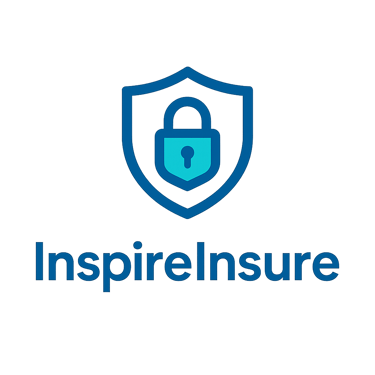Cybersecurity Laws Freelancers Must Know in 2025: Stay Legally Protected as a Solopreneur
Learn the top cybersecurity laws that affect freelancers in 2025, including FTC rules, CCPA, GDPR, and breach notification laws. Discover how to stay compliant, protect client data, and reduce your legal risk as an independent contractor.
COMPLIANCE & LEGAL
Written by InspireInsure | Compliance & Legal for Freelancers and Microbusinesses
8/3/20254 min read
Cybersecurity Laws You Should Know as a Freelancer in 2025
You may not think you run a tech company—but if your business touches personally identifiable information (PII), you’re already operating under a web of state and federal rules.
In today’s remote, digital-first world, freelancers handle more client data than ever before—whether you’re a graphic designer, copywriter, developer, or online coach. But along with the perks of independence come responsibilities you might not have considered: you’re legally responsible for how you collect, store, and protect digital data. Cybersecurity laws are no longer just for big tech companies; they now directly affect independent contractors, solopreneurs, and micro-business owners. Failing to follow these laws can lead to hefty fines, lawsuits, or even being removed from freelance marketplaces. This article guides you through the key cybersecurity laws U.S. freelancers should know in 2025, how they relate to your work, and how insurance can help protect you.
🔐 Why Cybersecurity Laws Apply to Freelancers
Real-Life Example:
Jamie, a freelance web designer, had a form on her site that didn’t ask for cookie consent. An EU visitor filed a complaint. She was contacted by a data authority and asked to prove consent was logged. She couldn’t, and her email service temporarily suspended her account. After updating her forms and privacy policy, she was able to recover. Had it escalated, cyber insurance could’ve helped.
Freelancers now:
Store client data in Google Drive, Dropbox, Notion, etc.
Use Stripe, PayPal, and other tools that handle payment data
Access sensitive internal platforms or APIs via contracts
Send emails/newsletters that may collect user data (GDPR/CCPA applies!)
⚖️ Key Cybersecurity Laws Freelancers Should Know
Let’s break down the most important ones,
What it is:
A federal rule under the Gramm-Leach-Bliley Act, recently expanded to apply to a broader group of small businesses.
1. FTC Safeguards Rule
Why it matters to freelancers:
If you’re a consultant, web developer, or freelancer who handles sensitive client information (especially for finance, healthcare, or legal industries), you may be required to:
Create a written security plan
Encrypt customer data
Train anyone who works with you (even a VA)
Use multi-factor authentication (MFA)
Risks of non-compliance:
Failure can result in FTC fines, lawsuits from clients, and permanent bans from platforms like Upwork or Fiverr.
What it is:
All 50 U.S. states have laws requiring businesses to notify individuals if their data is exposed in a breach.
2. State Data Breach Notification Laws (Like California, New York, Texas)
Why it matters to freelancers:
Let’s say your laptop gets stolen or your cloud storage gets hacked—you may be legally required to inform every client whose data you lost.
Risks of non-compliance:
Fines per unreported user
Class-action lawsuits
Regulatory penalties
What it is:
A major U.S. privacy law that gives Californians rights to access, delete, or control their data.
3. California Consumer Privacy Act (CCPA/CPRA)
Why it matters to freelancers:
If you collect any personal data from California residents—via email signup, client intake forms, or sales funnels—you may fall under CCPA.
You may need to:
Include a privacy notice on your site
Let users opt out of data selling/sharing
Respond to data deletion requests within 45 days
What it is:
The EU’s data protection law—but it applies to anyone collecting data from EU residents, even U.S. freelancers.
4. General Data Protection Regulation (GDPR)
Why it matters:
If you market your services internationally or use website cookies, GDPR likely applies. This means:
Cookie banners are required
You must gain consent to send emails
You must honor EU data deletion and export requests
What it is:
Many clients (especially corporate or agency ones) now include data protection clauses in freelance contracts.
Examples:
“Freelancers must follow the NIST cybersecurity framework.”
“Must notify client of any breach within 48 hours.”
“Must carry cyber liability insurance.”
5. Contractual Cybersecurity Requirements
Why it matters:
If you agree to those terms and violate them (even unintentionally), you may be legally liable for breach of contract.
Real-World Freelancer Scenarios:
Example 1: Shopify Developer
Stores login credentials for 12 client stores in Notion
Account gets hacked → data exposed
CCPA + breach laws trigger notification + costs
Cyber insurance covers legal & notification expenses
Example 2: UX Designer with Email List
Collects names/emails via opt-in form
Didn’t add cookie banner or GDPR disclaimer
Gets a takedown request from an EU resident
Privacy violation risk + possible penalties


How Insurance Helps You Stay Compliant
You can follow every best practice and still suffer a breach. That’s where the right insurance makes all the difference.
✅ Cyber Liability Insurance
Covers costs of notifying clients after a breach
Pays for legal defense if you're sued
May cover ransomware payments or system restoration
✅ Tech Errors & Omissions (Tech E&O)
Protects you if a client sues due to a mistake that leads to a breach
Often required if you're working on SaaS, APIs, or custom code
✅ Business Owner’s Policy (BOP)
Combines general liability + business property + optional cyber add-ons
Ideal for solo LLCs or freelancers with small teams
Final Thoughts: Stay Compliant, Stay Protected
Cybersecurity laws aren't just for large corporations. In 2025, freelancers and solopreneurs must treat data like the valuable asset it is—and understand their legal responsibilities in handling it.
Good news? You don’t need to be a lawyer or IT security expert to protect your business. With basic awareness, smart insurance choices, and the right tools, you can stay compliant and build trust with your clients.
Frequently asked questions
1. Do cybersecurity laws apply to freelancers in the U.S.?
Yes. If you handle client data—especially personal, financial, or health-related information—you're legally required to follow data protection laws like the FTC Safeguards Rule, state privacy laws (like CCPA), and possibly even international regulations like GDPR if you serve European clients.
2. What is the FTC Safeguards Rule, and how does it affect freelancers?
The FTC Safeguards Rule requires businesses, including certain sole proprietors, to implement administrative, technical, and physical safeguards to protect customer information. Freelancers in financial, consulting, or IT services may fall under this rule and must take compliance seriously.
3. Do I need to comply with GDPR as a U.S.-based freelancer?
Maybe. If you collect or process data from clients or users in the EU, GDPR applies—even if you’re located in the U.S. This includes email marketing lists, e-commerce orders, or project data that originates from the EU.
4. What happens if a freelancer suffers a data breach?
Depending on the state, you may be required by law to notify affected individuals, regulatory bodies, or both. Failing to do so can lead to hefty fines and reputational damage. That’s why cybersecurity insurance and having a breach response plan are critical.
5. Can cyber liability insurance protect freelancers from legal risks?
Yes. Cyber insurance can cover costs related to data breaches, legal defense, regulatory fines, and even lost income. It acts as a vital safety net if your freelance business handles sensitive data and becomes a target of cybercrime.
Insurance
Tailored cyber and business insurance for freelancers.
Support
Contact
info@inspireinsure.com
© 2025. All rights reserved.
